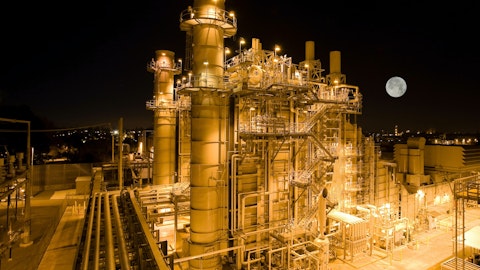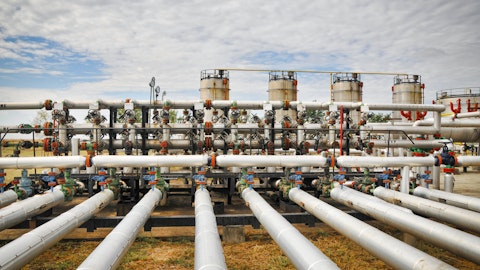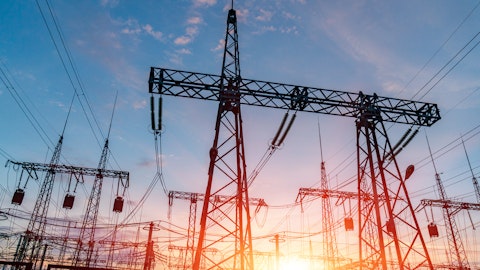Zack Van Everen: Okay, perfect. That’s all I had. Thanks everyone.
Steven Kobos: Thanks Zack.
Operator: [Operator Instructions] We now turn to Craig Shere with Tuohy Brothers. Your line is open.
Craig Shere: Good morning. Thanks for taking the question and congratulations on the good quarter. Expanding on Michael’s question, can you kind of express thoughts about your long-term interest investing in and retaining ownership of power pipeline or other infrastructure assets that would support LNG imports in the various markets you had mentioned?
Steven Kobos: Thanks Craig. It’s all going to vary by market. But if you look — if you take a step back, you look at fundamentals into these markets and you look at the macro fundamentals, more LNG FIDs being taken fewer people opening up the market. As we continue our success in opening up markets, I do expect there to be opportunities for uplift there. But we need to be clear. We’re looking at ways to get an uplift on an already outstanding infrastructure return. We’re going to keep looking at those. And it’s going to depend really — like I said, we did the deal that Petrobras wanted to do on Sequoia. A lot of this is going to be what makes the most sense with that counterparty. I know that’s basic answer, but that’s where these deals come down. And though we’re working with sovereigns all the time. There’s still somebody across the table and you need to be selling something that they want to buy, and we think they will.
Craig Shere: Understood. And just want to dig a little more into Jeremy’s 2024 question. I know that there’s no guidance, but I presume that there’s some comparative obvious drivers such as the Sequoia charter versus the robust 2023 gas margins whether you might have ongoing seasonal Argentine deployments. And obviously, the absence of the Excellence dry docking next year. From a top level on puts and takes, do you see these things kind of netting out, being a little more positive? Any broad thoughts?
Steven Kobos: I’m going to look back today again on that, Craig, because I think you’re asking me to undercut or answer. I’m not guiding to it, but — and you’re going to have to help me, Dana. I don’t really know what we’ve–
Dana Armstrong: Yes. Apologies, Craig but we — yes, we still need to get through our internal processes. And you’re right, I mean, all of the questions are very valid questions. But until we’ve sat down and really done a thorough review of all of these issues, we really don’t feel comfortable guiding to where 2024 will lay out. But we’ll get that to you as soon as we’re able to.
Steven Kobos: Yes. What we can tell you, Craig, is you’re going to have a lot easier time modeling it.
Craig Shere: Understood. That will be nice. Looking forward to it. Thank you.
Operator: This concludes our Q&A. I’ll now hand back to Steven Kobos, CEO for closing remarks.
Steven Kobos: Thank you again, to everyone who joined us on today’s call. As you heard this morning, we had a great quarter, and we are optimistic about our plans to maximize shareholder value. We take pride in being one of the world’s premier providers of flexible LNG infrastructure and a preferred partner for countries seeking to stabilize their energy systems. We will continue to take the steps necessary to scale our business and expand our reach even further. If anyone has any questions, please feel free to reach out to Craig Hicks, our VP of Investor Relations. Thank you very much.
Operator: Ladies and gentlemen, today’s call has now concluded. We’d like to thank you for your participation. You may now disconnect your lines.
Follow El Paso Electric Co (NYSE:EE)
Follow El Paso Electric Co (NYSE:EE)
Receive real-time insider trading and news alerts




